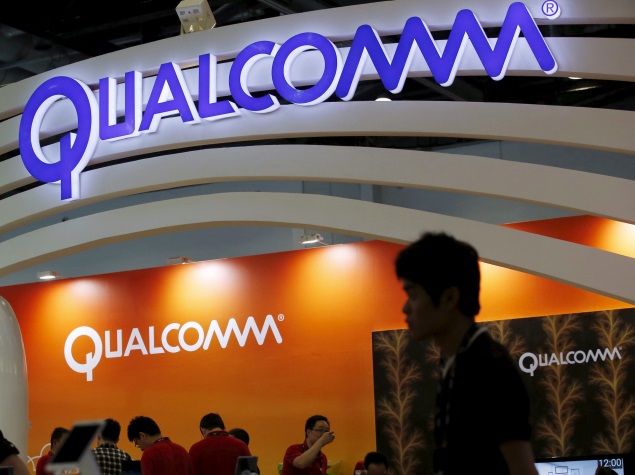- Home
- Mobiles
- Mobiles News
- EU Antitrust Regulators Query Qualcomm Rivals on Its Business Practices
EU Antitrust Regulators Query Qualcomm Rivals on Its Business Practices

Qualcomm has been feeling the regulatory heat in Europe, the United States, China, Japan and South Korea in recent years as watchdogs focus on its licensing model and its power over patents.
The bulk of its revenue comes from selling baseband chips, which enable phones to communicate with carrier networks, but a large portion of its profit comes from licensing patents for its CDMA cellphone technology.
(Also see: EU Antitrust Regulators Said Not to Be Probing Qualcomm Licensing Deals)
The European Commission told Qualcomm in October last year that it was investigating the way it sells and markets its chips, as well as rebates and financial incentives offered to customers, the company said in a regulatory filing last month.
In a questionnaire sent to competitors last week, the EU competition authority asked about the impact of various Qualcomm practices such as pass-through rights where phone makers are allowed to use patents already licensed by Qualcomm.
It also wanted to know how they feel about cross-licences and mutual non-assertion provisions in which companies agree not to enforce patent rights against each other.
Recipients of the document of more than 40 questions have until mid-May to respond.
A Commission spokeswoman declined to comment and Qualcomm had no immediate comment.
This is one of two EU inquiries into the company. The other probe, begun in 2010, was triggered by a complaint from British cellphone chipmaker Icera, a subsidiary of Qualcomm rival Nvidia Corp, about rebates and financial incentives.
The EU executive scrapped a two-year probe into the company's patent royalties in 2009 after complainants including Ericsson and Texas Instruments withdrew their grievances.
© Thomson Reuters 2015
Catch the latest from the Consumer Electronics Show on Gadgets 360, at our CES 2026 hub.
Related Stories
- Samsung Galaxy Unpacked 2025
- ChatGPT
- Redmi Note 14 Pro+
- iPhone 16
- Apple Vision Pro
- Oneplus 12
- OnePlus Nord CE 3 Lite 5G
- iPhone 13
- Xiaomi 14 Pro
- Oppo Find N3
- Tecno Spark Go (2023)
- Realme V30
- Best Phones Under 25000
- Samsung Galaxy S24 Series
- Cryptocurrency
- iQoo 12
- Samsung Galaxy S24 Ultra
- Giottus
- Samsung Galaxy Z Flip 5
- Apple 'Scary Fast'
- Housefull 5
- GoPro Hero 12 Black Review
- Invincible Season 2
- JioGlass
- HD Ready TV
- Laptop Under 50000
- Smartwatch Under 10000
- Latest Mobile Phones
- Compare Phones
- OPPO Reno 15 Pro Max
- Honor Win RT
- Honor Win
- Xiaomi 17 Ultra Leica Edition
- Xiaomi 17 Ultra
- Huawei Nova 15
- Huawei Nova 15 Pro
- Huawei Nova 15 Ultra
- Asus ProArt P16
- MacBook Pro 14-inch (M5, 2025)
- OPPO Pad Air 5
- Huawei MatePad 11.5 (2026)
- Xiaomi Watch 5
- Huawei Watch 10th Anniversary Edition
- Acerpure Nitro Z Series 100-inch QLED TV
- Samsung 43 Inch LED Ultra HD (4K) Smart TV (UA43UE81AFULXL)
- Asus ROG Ally
- Nintendo Switch Lite
- Haier 1.6 Ton 5 Star Inverter Split AC (HSU19G-MZAID5BN-INV)
- Haier 1.6 Ton 5 Star Inverter Split AC (HSU19G-MZAIM5BN-INV)

















